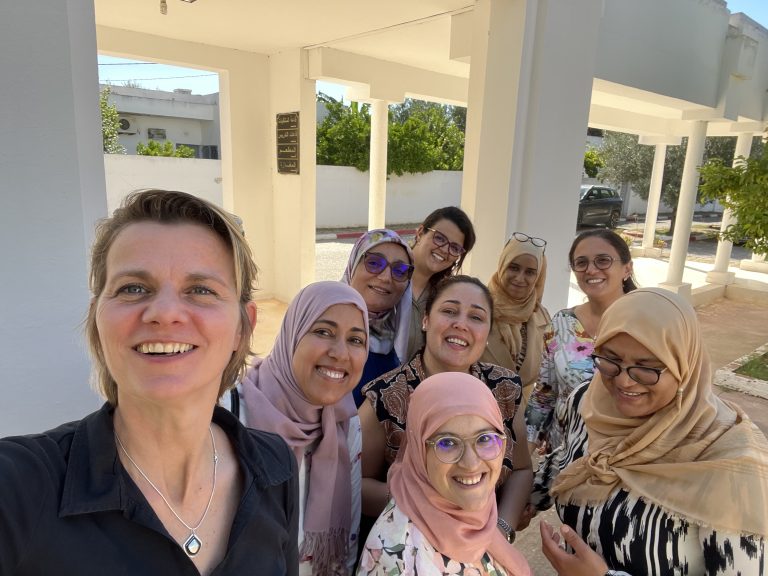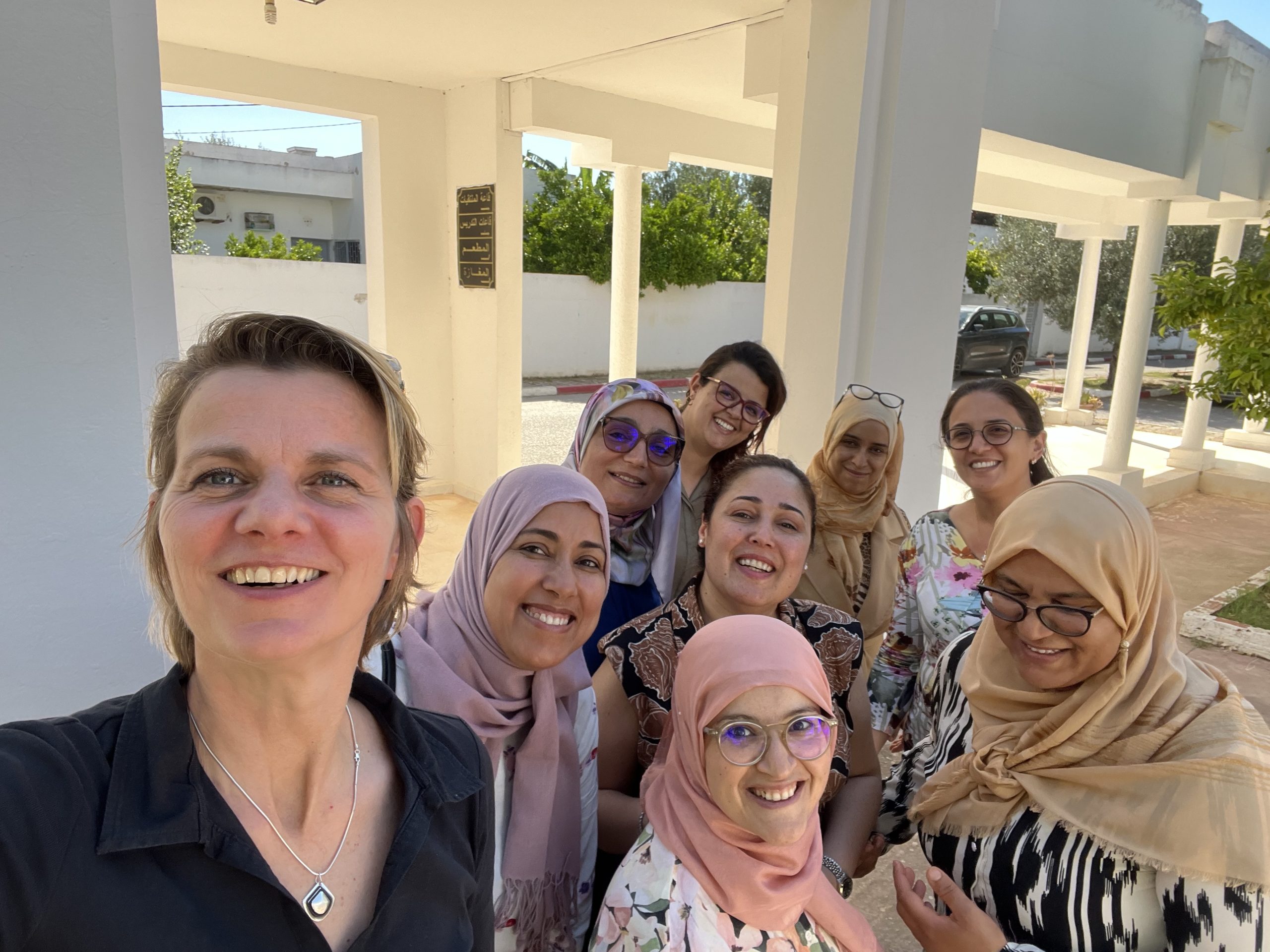
Tunisia’s labor market struggles to create high-value jobs for its highly education population. This leaves 35% of young people unemployed. The agricultural sector accounts for 11-12% of GDP and 14.5% of employment, but it lacks the skilled agri-food professionals required to tackle the growing impacts of climate change.
TVET teachers in Ben Arous struggled to train their students in innovative climate- and water-smart agricultural techniques such as hydroponic systems and greenhouse cultivation. Climate control within greenhouses was an especially challenging topic. Where teachers were unequipped to transfer knowledge to students, the skill gap between graduates’ competencies and the needs of the labor market grew.
To prepare students to start businesses or find employment in the agri-food sector, iCRA trained the teachers to instill entrepreneurial skills and attitudes in their students. For example teamwork and networking. Based on field visits to several companies, we identified skills essential to becoming a successful entrepreneur in Tunisia. Then we delivered training on these relevant entrepreneurial and soft skills. By receiving training in the skills their students need, the trainers of AVFA and TVET Ben Arous were able to integrate them into their curricula. We also developed outreach plans for building stronger linkages with private companies and further boost the TVET’s entrepreneurial focus.
Thanks to new technologies, entrepreneurial opportunities and international cooperation, the domestic horticulture sector will become more attractive to young people. In the short term, this will improve employment and kick-start new businesses. Long term, it will contribute to a climate-resilient horticulture sector in Tunisia that is ready for the future.
Location(s)
Tunisia
Timeline
2023 -2024
Category
Agri-education
Key theme(s)
Entrepreneurship, Youth employment
Partners
Delphy BV, Agency for Agricultural Extension and Training (AVFA)


